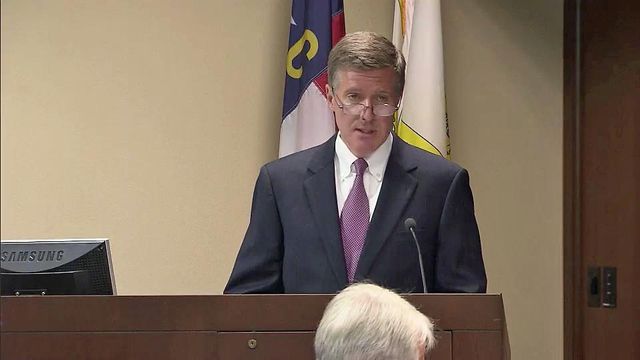UNC-CH paid $3.1M for academic fraud probe
UNC-Chapel Hill paid more than $3.1 million to a Washington, D.C., law firm for its outside investigation of academic fraud at the school, according to an invoice.
Posted — UpdatedMeanwhile, the Southern Association of Colleges and Schools has asked UNC-Chapel Hill officials for more information to determine whether the school is in compliance with several accreditation standards.
UNC President Tom Ross and UNC-Chapel Hill Chancellor Carolt Folt hired Wainstein early this year to provide an independent look at the scandal. According to the Oct. 31 invoice, Wainstein put more than 720 hours into the investigation.
Six associates and four paralegals at Wainstein's law firm, Cadwalader, Wickersham & Taft, put a total of 4,184 hours into the investigation, according to the invoice. The bill for their and Wainstein's time came to almost $3 million, and the law firm charged UNC-Chapel Hill another $115,775 for expenses such as copying, postage and travel.
The invoice notes that the law firm provided a $60,000 discount on its services and wrote off another $68,662 in fees.
University spokeswoman Karen Moon said no taxpayer money or tuition revenue was used to pay the legal fees. The bill is being paid with unrestricted earnings from the UNC-Chapel Hill Foundation Inc., she said in an email.
Folt called the expense necessary to learn what really happened in the fraud scheme.
"It's not the kind of thing you'd like to spend money on, but I fee what we did with Wainstein, the job that they did was absolutely critical for us to be able to move forward," she said.
Recently, the mood on campus has improved, UNC Student Body President Andrew Powell said.
"Obviously, there are things we are still dealing with," he said. "I think we are confident we are doing the right thing."
UNC-Chapel Hill also has spent more than $2 million on outside public relations firms to handle the school's communications about the fraud scandal. University officials have said the PR costs were paid for with private donations.
SACS put the university on notice when claims of academic impropriety first surfaced in 2011, and SACS president Belle Wheelan said recently that her organization considered Wainstein's report as a new issue.
SACS vice president Cheryl Cardell said in the letter that Wainstein's findings don't jibe with information the university provided to the accrediting organization last year, when officials insisted the fraud was limited to the activities of two people in the Department of African and Afro-American Studies.
The university has until Jan. 7 to respond to SACS' request.
Folt said she is confident UNC-Chapel Hill will retain its accreditation, adding that the university described in Wainstein's report doesn't reflect the school's current operations.
• Credits
Copyright 2024 by Capitol Broadcasting Company. All rights reserved. This material may not be published, broadcast, rewritten or redistributed.





